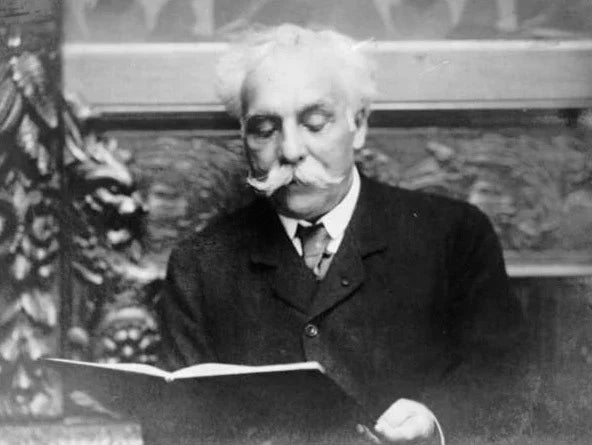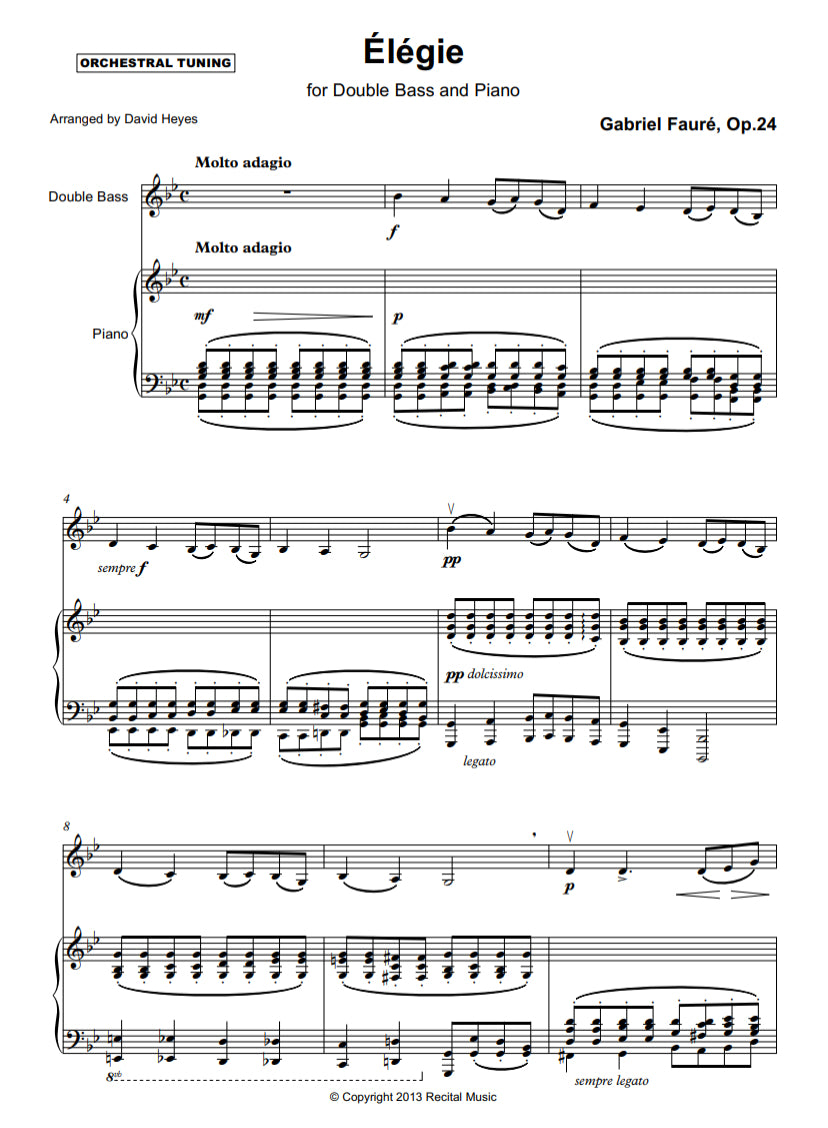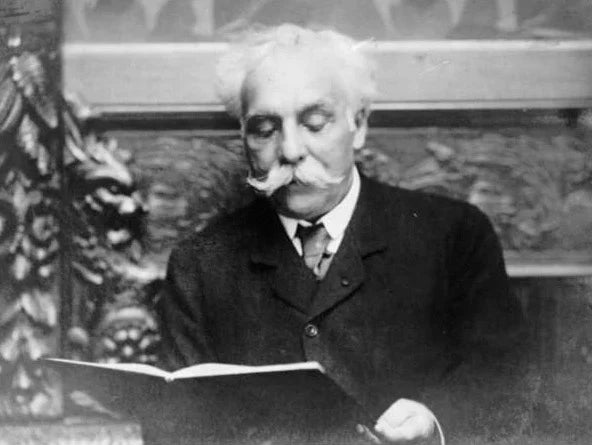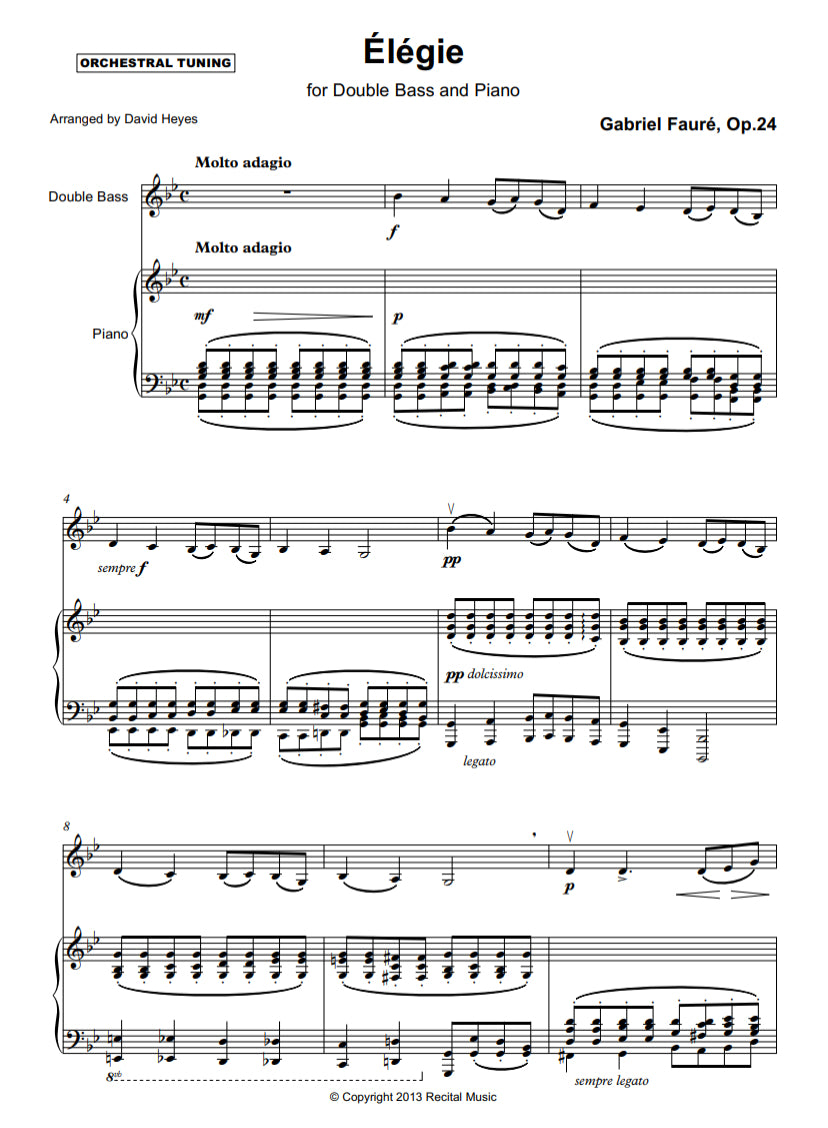David Heyes
Gabriel Fauré: Élégie Op.24 for double bass & piano (arranged by David Heyes)
Gabriel Fauré: Élégie Op.24 for double bass & piano (arranged by David Heyes)
Couldn't load pickup availability
About the Composition
Élégie Op.27 by Gabriel Fauré is originally for cello and piano but transcribes well for the advanced bassist and is an excellent addition to the transcription repertoire. It successfully explores the sonorous, lyrical and expressive possibilities of the double bass throughout its solo register, with technical challenges that allow the soloist to demonstrate virtuosity and technical accomplishment.
Élégie was composed in 1889, as the slow movement of a proposed cello sonata, which was never completed, and it was first performed and published in 1883 as a stand-alone piece and with its present title. It is dedicated to the cellist Jules Loeb, who gave the first performances accompanied by the composer in December 1883 and it was later orchestrated and performed at the Société Nationale in April 1901, with Pablo Casals as the soloist and the composer as conductor.
The edition, written a fifth higher than the original and to exploit the solo register of the double bass, includes accompaniments for both solo and orchestral tuning.
About the Comopser
Gabriel Urbain Fauré (1845 – 1924) was a French composer, organist, pianist and teacher and was one of the foremost French composers of his generation. His musical style influenced many 20th-century composers and among his best-known works are his Pavane, Requiem, Nocturnes, Après un rêve and Clair de lune, alongside a wealth of instrumental and vocal music.
Among his teachers was Camille Saint-Saëns, who became a lifelong friend, and after graduating in 1865, Fauré earned a modest living as an organist and teacher, leaving him little time for composition. He subsequently was appointed to the important posts of organist of the Église de la Madeleine and director of the Paris Conservatoire.
Fauré's music has been described as linking the end of Romanticism with the modernism of the second quarter of the 20th century. When he was born, Chopin was still composing, and by the time of Fauré's death, jazz and the atonal music of the Second Viennese School were being heard. Grove's Dictionary of Music and Musicians describes him as the most advanced composer of his generation in France and noted that his harmonic and melodic innovations influenced the teaching of harmony for later generations.





